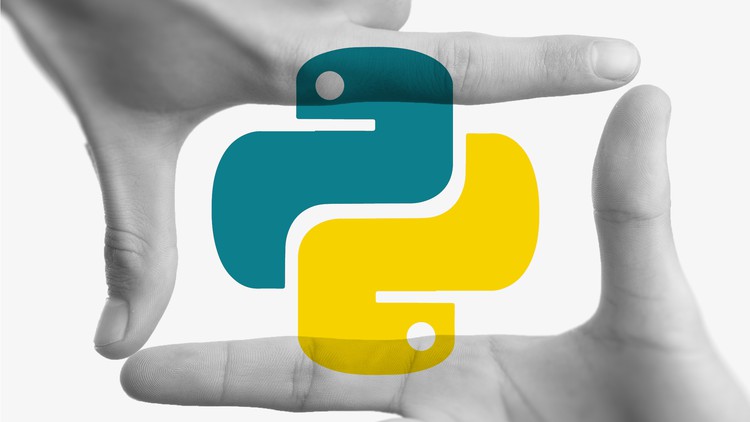
Full Practice Exams 31-03| Original Questions with clear explanation provided for each test| Pass ”PCAP Certification”
What you will learn
Modules and Packages
Exceptions
Strings
Object-Oriented Programming
Miscellaneous (List Comprehensions, Lambdas, Closures, and I/O Operations)
Description
Why learn Python?
Python is easy to learn. The syntax is simple and the code is very readable. With Python, you can write programs in fewer lines of code than with most other programming languages. The popularity of Python is growing rapidly. It is now one of the most popular programming languages. Python has a wide variety of applications. It is used for automation, web application development, artificial intelligence, data science
Why get certified ?
There is a growing need for Python programmers and it is now more important than ever to gain recognition for your programming expertise and be able to prove your skills. Certification opens doors to a better job and a better salary ! It is a great motivator for self-improvement and self-development. It is one of the key requirements set by an increasing number of IT managers and, frequently, a standard criterion for candidates among recruiters.
Will I Pass the Exam if I Buy this Course?
I’m putting this question first as not to disillusion anyone. The tests cover all the important topics and coupled with finishing the Python Essentials courses on OpenEDG, then you’ll be in a very good position to pass the exam. These tests will supplement your learning and prepare you for the exact format of the exam to maximise your chances on passing. I’ve yet to come across any other course that mimics the actual exam and has detailed answers for each questions.
this exam including :
Python PCAP Practice Exam #1: Modules and Packages
Objectives covered by the block
- import variants; advanced qualifiying for nested modules
- dir(); sys.path variable
- math: ceil(), floor(), trunc(), factorial(), hypot(), sqrt(); random: random(), seed(), choice(), sample()
- platform: platform(), machine(), processor(), system(), version(), python_implementation(), python_version_tuple()
- idea, __pycache__, __name__, public variables, __init__.py
- searching for modules/packages; nested packages vs directory tree
Python PCAP Practice Exam #2: Exceptions
Objectives covered by the block
- except, except:-except; except:-else:, except (e1,e2)
- the hierarchy of exceptions
- raise, raise ex, assert
- event classes, except E as e, arg property
- self-defined exceptions, defining and using
Python PCAP Practice Exam #3: Strings
Objectives covered by the block
- ASCII, UNICODE, UTF-8, codepoints, escape sequences
- ord(), chr(), literals
- indexing, slicing, immutability
- iterating through,
- concatenating, multiplying, comparing (against strings and numbers)
- in, not in
- .isxxx(), .join(), .split()
- .sort(), sorted(), .index(), .find(), .rfind()
Python PCAP Practice Exam #4: Object-Oriented Programming
Objectives covered by the block (12 items)
- ideas: class, object, property, method, encapsulation, inheritance, grammar vs class, superclass, subclass
- instance vs class variables: declaring, initializing
- __dict__ property (objects vs classes)
- private components (instance vs classes), name mangling
- methods: declaring, using, self parameter
- instrospection: hasattr() (objects vs classes), __name__, __module__, __bases__ properties
- inheritance: single, multiple, isinstance(), overriding, not is and is operators
- constructors: declaring and invoking
- polymorphism
- __name__, __module__, __bases__ properties, __str__() method
- multiple inheritance, diamonds
Python PCAP Practice Exam #5: Miscellaneous (List Comprehensions, Lambdas, Closures, and I/O Operations)
Objectives covered by the block (4 items)
- list comprehension: if operator, using list comprehensions
- lambdas: defining and using lambdas, self-defined functions taking lambda as as arguments; map(), filter();
- closures: meaning, defining, and using closures
- I/O Operations: I/O modes, predefined streams, handles; text/binary modes
open(), errno and its values; close()
.read(), .write(), .readline(); readlines() (along with bytearray())
Python PCAP Practice Exam #6 (with questions from all areas):
The Exam #6 is a little bit different from the other 5 as it covers questions on topics not explicitly listed in the PCAP exam syllabus : Basic Concepts, Data Types, Evaluations, and Basic I/O Operations, Control Flow, Data Collections and Functions. Those are foundational topics and the PCAP exam will very likely have questions based on those foundational topics. To be successful with the PCAP-31-03 exam, you need to master those foundational concepts and this practice test will help you review and master them.
Questions in the Practice exams are much more difficult than what is included in the Certified Associate in Python Programming Certification. I recommend doing hands-on to test the validity of the answers and emphasize on the importance of coding different permutations and combinations on the examples given.
Are there any Explanations?
Yes! There are detailed explanations to help explain the answers, you aren’t just spoon fed things. If you learn the concepts you can apply them to other questions and improve your overall Python knowledge.
Now, get prepared for the Exam !
Content